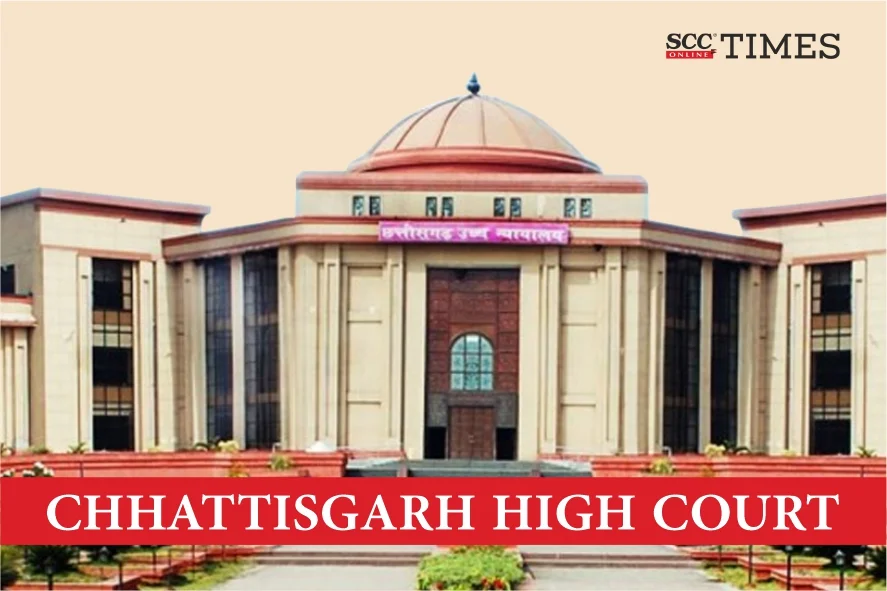Chhattisgarh High Court: In a writ petition filed by a retired public servant seeking quashing of the order whereby permission was granted to recover Rs 9.23 lakhs from the petitioner’s pension under Rule 9 of the Chhattisgarh Civil Services (Pension) Rules, 1976 (‘the Rules’), a Single Bench of Bibhu Datta Guru, J., allowed the petition, holding that there was nothing to establish that the deceased was found guilty in any judicial or disciplinary proceeding. Thus, the impugned order was not sustainable in the eyes of the law. Accordingly, the Court ordered the State to refund any amount that had already been deducted.
Background
The petitioner (now deceased, proceeded through his legal representatives) was appointed as an Assistant Director in 1990 and retired from service in 2018 upon attaining the age of superannuation.
It was contended by the deceased that during his service, a notice was issued alleging that he had committed misappropriation. The deceased submitted his reply denying the allegations. Another show-cause notice was issued after his retirement seeking his reply concerning the allegations. Pursuant to the same, the deceased denied the allegations again in his reply. Thereafter, the impugned order was passed granting permission to recover Rs. 9.23 Lakhs from the deceased’s pension.
Aggrieved, the petitioner filed the present petition.
Issue
Whether while withholding the pension or part thereof, an opportunity of hearing is required to be afforded to the petitioner.
Analysis and Decision
The Court relied on State of Punjab v. K.R. Erry (1973) 1 SCC 120, wherein it was held that even an administrative order that involves civil consequences must be made consistently with the rules of natural justice after informing the respondent about the case, the evidence in support thereof and after giving an opportunity to the respondent of being heard and meeting or explaining the evidence. Similarly, the Court also placed reliance on Rameshwar Yadav v. Union of India 1989 Supp (2) SCC 565, wherein, while dealing with the question of withholding pension, the Supreme Court held that the competent authority shall apply its mind to the question as to whether the pension should be suspended or not.
The Court reiterated that gratuity and pension were not bounties. The Court said that an employee earns these benefits by dint of his long, continuous, faithful, and unblemished service. Thus, these were hard-earned benefits that accrue to an employee and were in the nature of “property”. Accordingly, this right to property could not be taken away without the due process of law as per Article 300-A of the Constitution.
The Court stated, “A person cannot be deprived of this pension without the authority of law, which is the constitutional mandate enshrined in Article 300-A.” Thus, the Court held that the attempt of the State to take away a part of pension, gratuity or even leave encashment without any statutory provision and under the umbrage of administrative instruction could not be permitted.
Upon bare perusal of Rule 9 of the Rules, the Court stated that the recovery from pension of the whole or part of any pecuniary loss caused to the Government could be ordered if, in any departmental or judicial proceeding, the employee wasfound guilty. However, in the case at hand, the Court held that except for the show cause notice and the reply of the deceased, there was nothing to establish that the deceased was found guilty in any judicial or disciplinary proceeding. Thus, the recovery order issued under Rule 9 was not sustainable in the eyes of the law.
Accordingly, the Court quashed the impugned order and directed that whatever amount had been deducted from the deceased’s pension, pursuant to the impugned order, be refunded to the legal heirs of the deceased within 45 days.
[Rajkumar Gonekar (dead) through LRs v. State of Chhattisgarh, 2025 SCC OnLine Chh 4360, decided on 02-04-2025]
Advocates who appeared in this case :
For the petitioner: N. Naha Roy
For the respondent: Kanwaljeet Singh Saini







